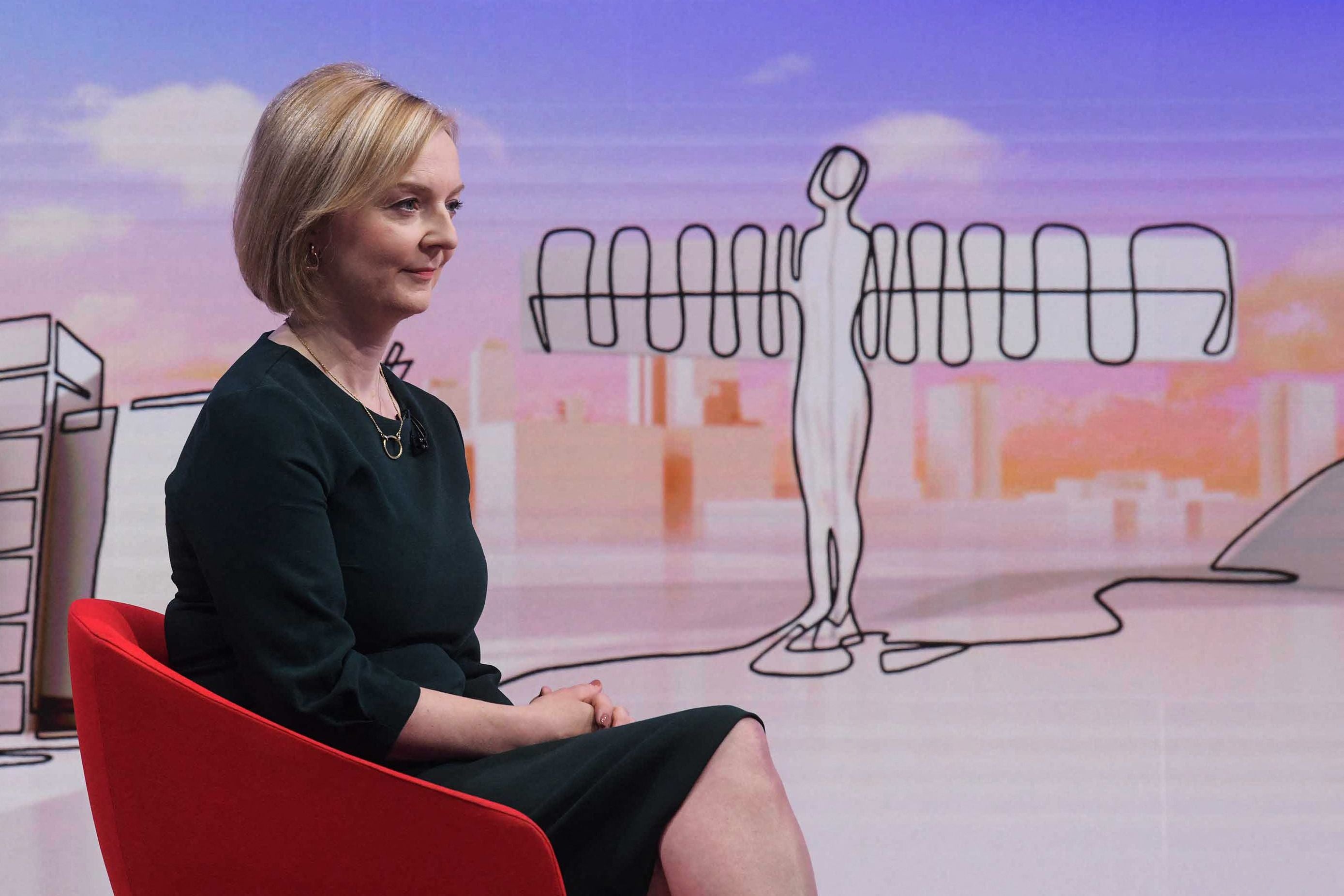The markets are worried about Liz Truss as prime minister
The new government will need to learn fast, or face the brutal reality of a run on the pound, writes Hamish McRae


There is a real danger that the UK may have a sterling crisis on its hands and the new government must do its utmost to head that off. The financial markets have looked at the promises made by the two contenders to become the next prime minister and they are worried. Ominously, since she is the frontrunner, they are particularly worried about the plans for Liz Truss.
That is not a political judgement about her likelihood of being able to lead a durable administration, or an economic judgement on the likely success or otherwise of the policies we will get a taste of this week. It is a statement of fact.
The evidence? The plunge in the pound last week, the surge in gilt yields, and the extent to which the shares of domestically-oriented mid-cap British companies have been downgraded vis-a-vis their larger counterparts that rely more on global markets than the domestic one.
The pound is now down close to its lowest against the dollar for 30 years, and the bank HSBC thinks it will go lower. It has just had the worst month since the Brexit referendum, and there is even talk of it going to parity with the dollar. That has never happened before. The lowest it has ever been was on 25 February 1985, when it fell to $1.054.
It is quite true that this is also a function of dollar strength, for the yen is exceptionally weak against the dollar and the euro has dipped below parity. The pound is down a bit against the euro but not dramatically so. Nevertheless, the mood is ugly.
If the major banks expect the pound to fall further, the chances are that it will do so. Weakness against the dollar puts up import prices of all dollar-denominated goods, including oil, which in turn increases inflation yet further. I don’t think the pound is in this sort of death spiral, but this is what some people are saying.
Gilt yields are another gauge of the markets’ judgement of government competence. In the past few days they have shot up. Last Friday, the 10-yield yield on UK government stock was 2.9 per cent. At the beginning of August, it was 1.8 per cent. That is a huge increase in the cost of borrowing for the government. Think of your mortgage bill rising by more than one-third in the space of five weeks.
Again, this is a global thing. Yields have risen just about everywhere. But the climb in sterling rates has been faster and greater than most other developed economies. Again, there is a danger of a spiral, where higher interest rates increase the cost of funding the government and hence the fiscal deficit, which in turn undermines confidence in the government and pushes rates yet higher.
As for share prices, the point is simply that while those of large companies have not fallen much, the shares of medium-sized ones have slumped relative to their bigger competitors. In fact, the FTSE 250 share index has fallen by 20 per cent relative to the FTSE 100 index, the largest decline ever. The message is that big companies will be alright and actually will benefit from the weak pound. But the rest will suffer.
I happen to think the gloom is overdone, and that the markets are underrating both the competence of the new government and the resilience of the British economy. But the government has to live with the judgements of the market, whether they are justified or not. So it has to turn that mood around. How?
It will be borrowing a lot more money this year for reasons that are widely appreciated. So the deficit will go up, not down. If you are going to borrow more money, you have to convince the people who will lend it that they will get it back, and that it won’t be wasted. That means a long-term plan to reduce the deficit and short-term controls on the way the money is spent. To reprise that rather overworked expression Gordon Brown used in 1998, it is “prudence with a purpose”. Even though it all went wrong in the end, Gordon Brown was very good as chancellor at keeping the international markets onside.
To keep up to speed with all the latest opinions and comment, sign up to our free weekly Voices Dispatches newsletter by clicking here
Boris Johnson has not been at all good at communicating with the markets, or rather at doing so in a positive rather than negative way. Even Rishi Sunak, despite his general competence, has been under attack for weak control of spending. So the message that the new chancellor has to get across is that while more money will be spent, it will be spent wisely. They care less about rhetoric and ideology; they only look at the numbers.
The numbers are not good. This means that if the new chancellor does anything more than token tax cuts, the markets think they will be unsustainable. It means that many of the tax-cutting ideas voiced by Liz Truss will have to be postponed. It means that the government should look at what other countries are doing to support their economies and learn from those. And it means that the government should be cautious in its dealing with the EU, still a large trade partner.
This will not be music to the new government’s ears. It will need to learn fast, or face the brutal reality of a run on the pound. And if it allows that to happen, someone else will end up running the show.
Join our commenting forum
Join thought-provoking conversations, follow other Independent readers and see their replies
Comments
Bookmark popover
Removed from bookmarks